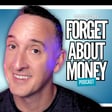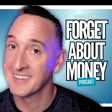
F.I.R.E. for Dummies: Money Wisdom with Jackie
🎙️ Welcome to the latest episode of the Forget About Money Podcast, hosted by David Baughier. In this fun, inspirational, and information-packed episode, we're joined by the amazing Jackie Cummings Koski, a renowned financial expert and author, as she dives into her exciting new book, "F.I.R.E. for Dummies." 🌟
Watch F.I.R.E. for Dummies on YouTube
🕒 Timestamps & Chapters:
0:00 Introduction
0:51 Writing "FIRE for Dummies"
2:01 Writing Experience: First Book
4:09 Origin Story of the Book Title
5:14 Simplifying Complex FIRE Topics
6:06 Pre-order Information
6:44 Research and Writing Process
8:19 Importance of Credentials
10:31 Collaboration with Technical Editor
11:00 Top Financial Challenges
16:41 Strategies for Financial Independence
21:04 Navigating Financial Information Overload
34:24 Impact of Financial Education
35:30 Teaching Financial Concepts
39:05 Mission of "FIRE for Dummies"
🔗 Links:
- Pre-order "F.I.R.E. for Dummies" on Amazon: [https://a.co/d/gYus4Xh]
- Check out Jackie's podcast "Catching Up to FI": [https://catchinguptofi.com/]
Follow Us:
- Twitter: @forgetaboutmoney
- Instagram: @forgetaboutmoney
- YouTube: @forgetaboutmoneypodcast
🌟 Don't forget to like, subscribe, and share this podcast for more insightful discussions on personal finance and the FIRE movement. Your support helps us bring more content like this to you!
Long Summary:
Today's episode is a treasure trove for anyone interested in the Financial Independence, Retire Early (FIRE) movement. Jackie Cummings Koski shares her journey in writing "FIRE for Dummies," giving us an exclusive behind-the-scenes look at her experiences, from the initial idea to the final manuscript. 📖✍️ She discusses the challenges and triumphs she faced, her collaboration with experts, and her mission to simplify complex financial concepts for everyone.
Jackie also reflects on her previous work, "Money Letters to My Daughter," describing it as a heartfelt project aimed at instilling financial wisdom in the next generation. She emphasizes the importance of starting financial education early and providing clear, accessible information to all.
Throughout the podcast, Jackie provides invaluable insights into navigating the overwhelming world of financial information, stressing the importance of reliable sources and tailored education. 🌍💡 She also shares practical advice on investment strategies, the importance of diversification, and making smart financial decisions for long-term independence.

